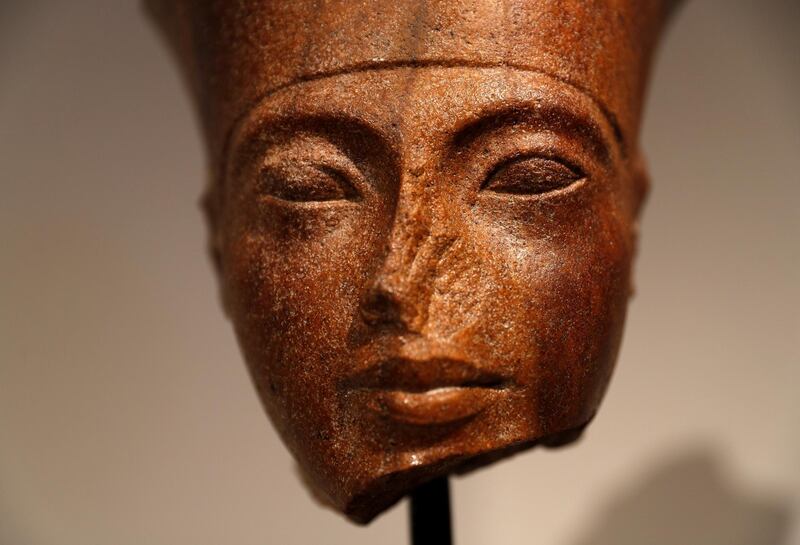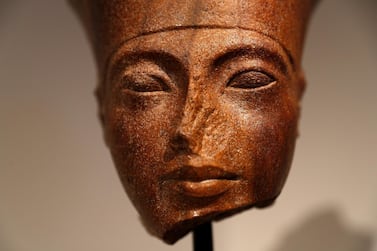Egypt has asked Interpol to help it retrieve a 3,000-year-old quartzite bust of Pharaoh Tutankhamun, which was sold at auction for £4 million (Dh18.4m) in London last week.
Auction house Christie’s sold the bust despite Cairo’s protestations that the artefact had probably been stolen in the 1970s.
Egypt's National Committee for Antiquities Repatriation said in a statement late on Monday that it had instructed a British law firm to file a lawsuit against Christie’s, arguing that legal documents proving ownership had not been provided before the sale.
The committee expressed its "deep discontent of the unprofessional way in which the Egyptian artefacts were sold without the provision of the ownership documents and proof that that the artefacts left Egypt in a legitimate manner".
Christie’s has repeatedly denied any wrongdoing. In its most recent statement, the auction house said it had “clearly carried out extensive due diligence” to verify provenance and legal title “establishing all required facts of recent ownership”.
Christie’s said it had acquired the bust from Munich dealer Heinz Herzer in 1985.
Before this, Joseph Messina, an Austrian dealer, acquired it in 1973-74 from Prinz Wilhelm von Thurn und Taxis who reportedly had it in his collection by the 1960s.
Former Egyptian Minister for Antiquities Zahi Hawass, who campaigned heavily to stop the sale of the bust, claimed it had been illegally taken from the Karnak Temple complex near Luxor in the 1970s.
Mr Hawass told The National before the auction that Egypt would try to stop the sale by legal means and that the country would not co-operate with Christie's in future if the sale went ahead.
Egypt had asked both Britain’s Foreign Office and United Nations cultural arm Unesco to step in and halt the sale.
The committee expressed in its statement “deep bewilderment that the British authorities failed to provide the support expected from it in this regard".







